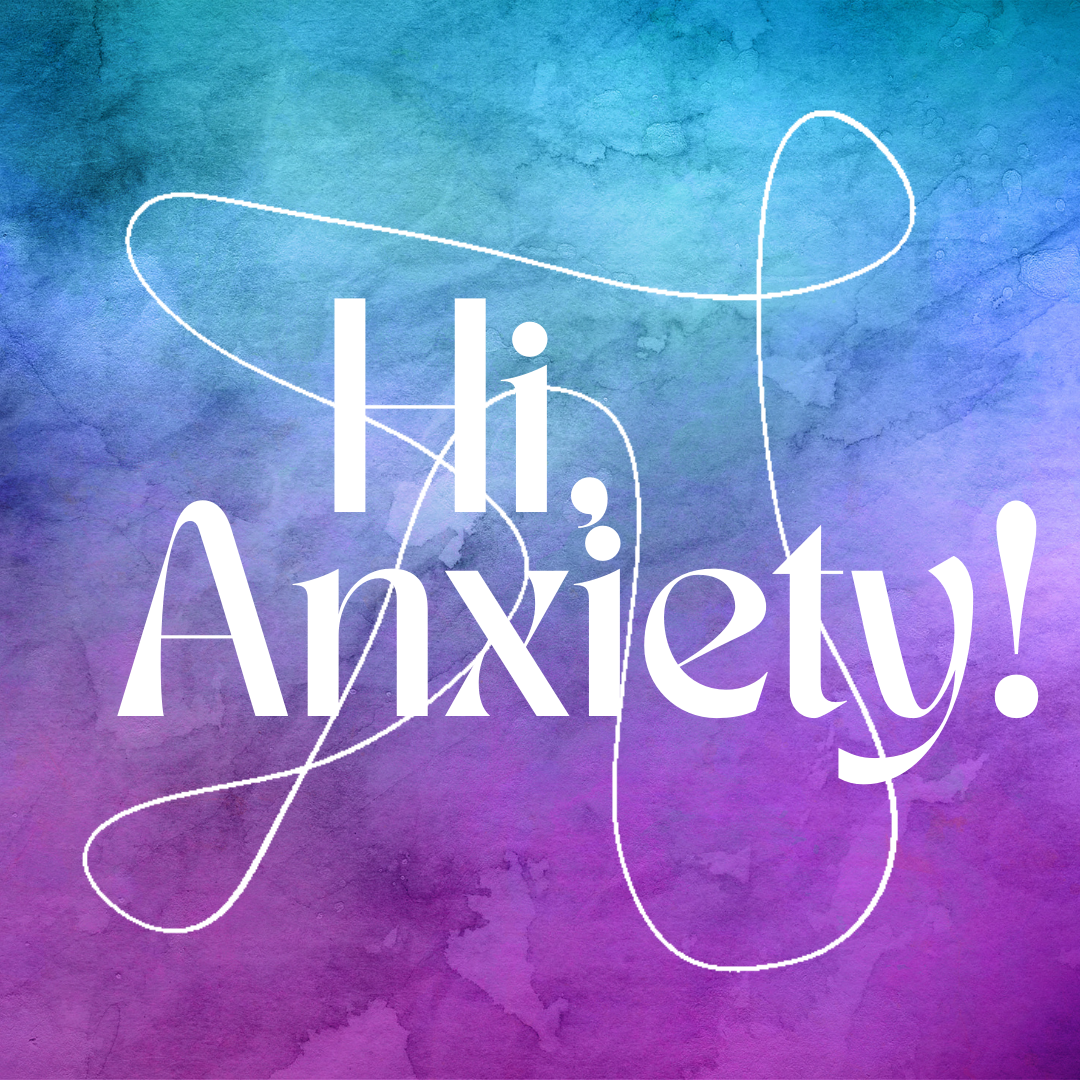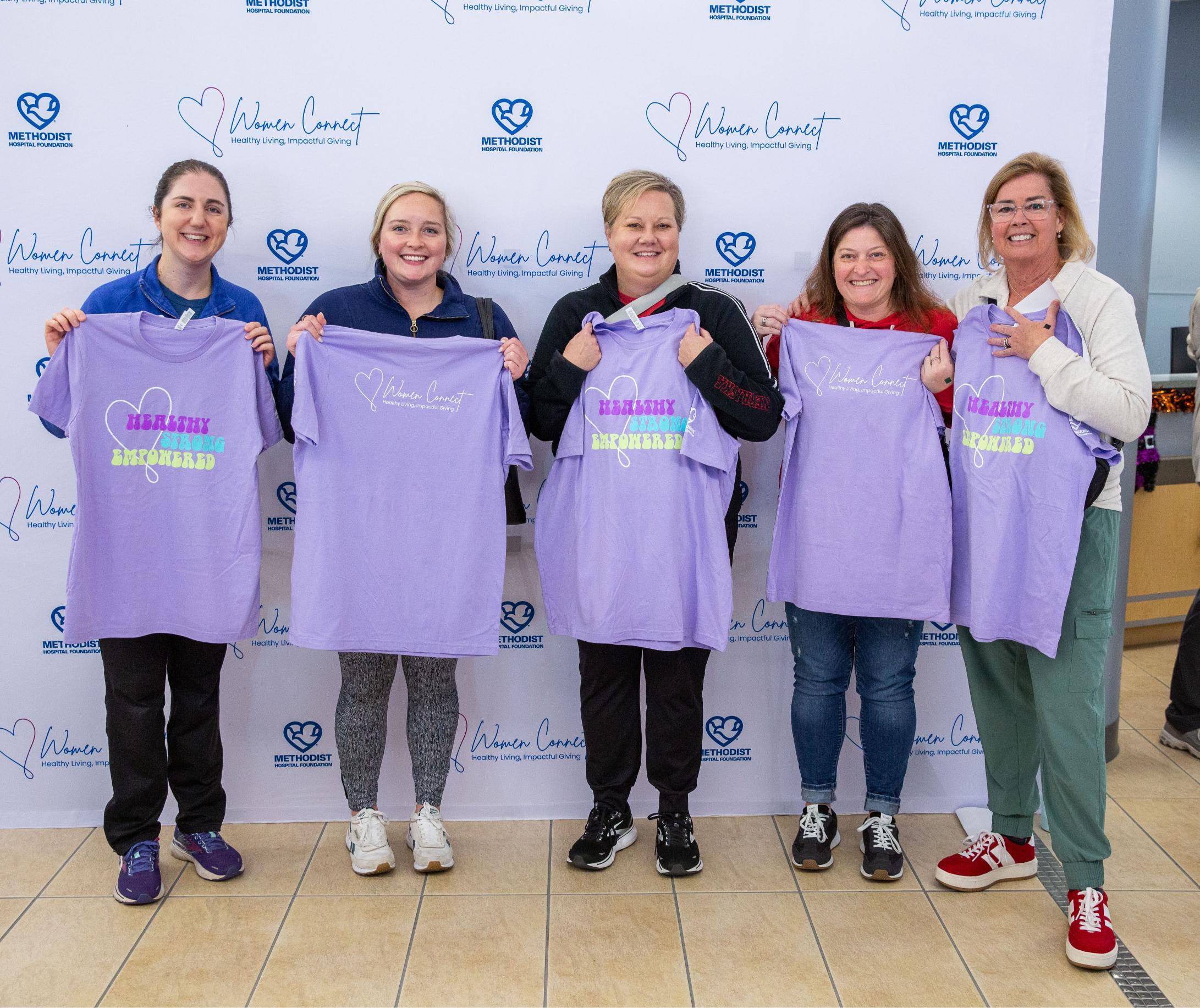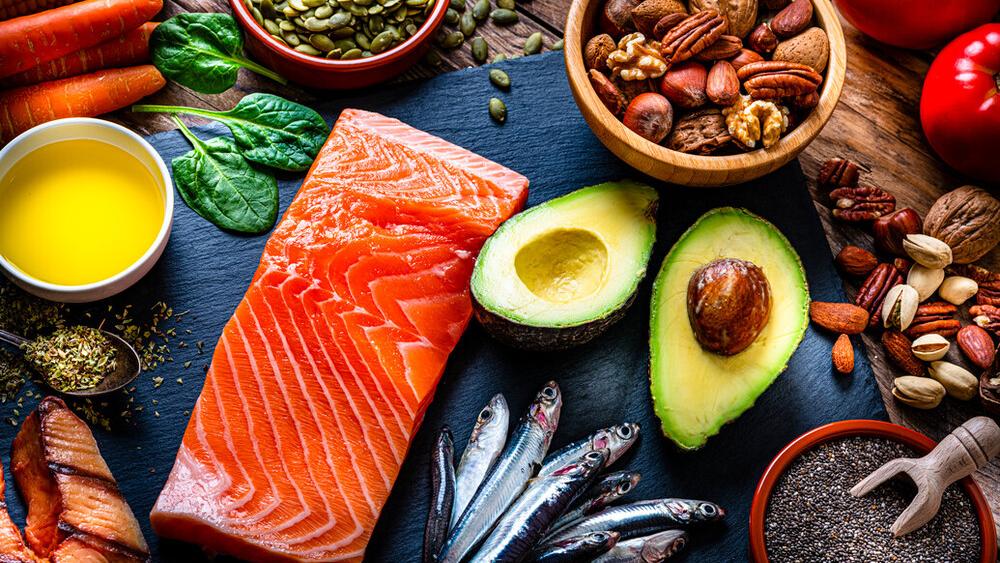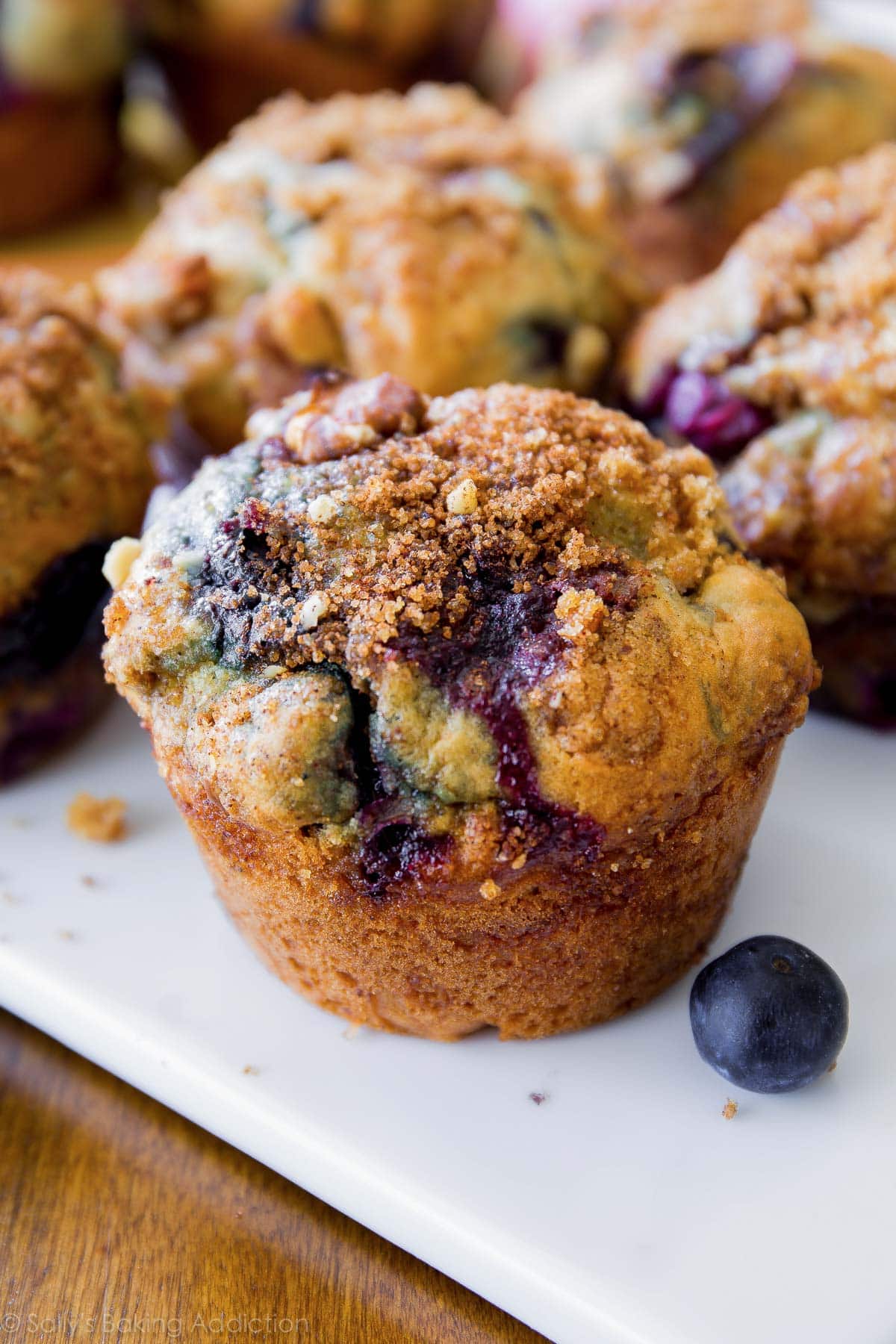
Women Connect
Hi, Anxiety! - Resources
To ensure you have this important information right at your fingertips, we're providing eco-friendly online resources from our Women Connect anxiety event.

We appreciate everyone who made time to join us on Saturday, October 26. We packed Nebraska Methodist College for our expert Q&A, free flu shots, therapy dog visits and more!
A special thanks to our expert panelists:
- Candice Harrington, LMHP, LADC, Counselor, Methodist Community Counseling Program
- DaeJanira LynCook, MS, LMHP, Counselor, Methodist Community Counseling Program
- Ellen McElderry, LIMHP, LADC, Program Manager, Methodist Community Counseling Program
- Dr. Lauren Shoemaker, Internal Medicine Physician, Methodist Healthwest

A Gift of Mindfulness: Subscribe to the Happier App for Free
Our Women Connect community is eligible for a FREE 6-month subscription to the Happier app, which can help us practice meditation and mindfulness.
Here's how to get set up:
If you don't have a Happier account:
- Click this link: Methodist Health Gift of Mindfulness.
- Create a new account.
- Tap Redeem on the next page.
- If you haven't already, download the free app from the Apple App Store or Google Play Store.
- Sign in using the same email address and password to redeem your code.
If you already have a Happier account:
- Click this link: Methodist Health Gift of Mindfulness.
- Tap "Log in" at the top of the screen where it says "Already have an account? Log in."
- Sign in using the same email address and password you use for your current account.
- Tap Redeem on the next page.
- Go back to the app on your phone and everything will be unlocked.

We all have anxiety. Let's figure it out together.
You are not alone. Millions of women experience anxiety, and women are three times more likely than men to experience an anxiety disorder. Seeking help is a sign of strength, not weakness.
You deserve to feel better. Anxiety can be debilitating, but with the right support, you can overcome it and live a more fulfilling life.
Therapy can be a powerful tool. Anxiety disorders are often very treatable, but more than 60% of people do not seek treatment. Therapy provides a safe space to explore your thoughts and feelings, develop coping strategies and learn new ways of managing anxiety.
Therapy is a journey, not a destination. It takes time and effort, but with consistency and commitment, you can achieve significant progress.
You're worth the investment. Your mental health is just as important as your physical health. Don't hesitate to seek the help you need.
5 Takeaways from Our Panel Discussion
-
Ellen McElderry, LIMHP, LADC, program manager, Methodist Community Counseling Program: "Sometimes there are benefits to having a little anxiety. It can motivate you to do things. It can drive you to take action. Very successful corporate leaders often have anxiety. Sometimes people are identified as Type-A personalities. I say the 'A' stands for ‘anxiety.’
"There is excitement or a little nervousness—and then there is anxiety. I think the simplest way to define it is: when you cross that line to where that excessive energy or emotion is no longer being useful—and it’s interfering with everything you're trying to accomplish—then it’s a problem or a challenge. Perhaps some type of intervention, support or help needs to take place."
Dr. Laura Shoemaker, internal medicine physician at Methodist Healthwest, said the physical manifestations of anxiety can include:
- Irritability
- Fatigue
- Nausea (feeling sick)
- Diarrhea or constipation
- Disturbed sleep
Dr. Shoemaker: "Women tend to activate the fight-or-flight response easier than men do. That’s our autonomic nervous system. We're producing excess adrenaline and cortisol in our bodies, which causes our heart rate to increase. This can cause nausea and GI distress because blood flow to our GI tract is limited. Instead, it’s going to our heart because our heart rate is increasing."
DaeJanira LynCook, MS, LMHP, counselor, Methodist Community Counseling Program: "Women really do think we can take on everything. We take on jobs, our families—all the responsibilities that we can, all the time. And we put ourselves on the back burner. We don’t take the time to slow down and take care of ourselves because we’re nurturers. But you can't pour from an empty cup."
Ellen McElderry: "When your toddler is learning to walk and they fall down, the first thing they do is turn—'How is Mom reacting?' If you panic, they're going to panic.
"It's not uncommon when we serve children for anxiety, the very next phone call is with Mom—'Let’’s talk about your anxiety.' When Mom starts to calm down, the kids start to calm down.
"It’s not about finger-pointing. It’s about taking a look at all the root causes. If you're a child with anxious parents, you’re going to be impacted by that environment.
"For parents, validate with your children that things are going to be okay. Focus on the facts, not catastrophes or 'what ifs.'"
Our panelists stressed the importance of:
- Establishing a good sleep routine
- That includes shutting the phone and electronics off at least 45 minutes before you want to go to sleep. "If you’re scrolling while you’re laying in bed, your brain is being triggered and you’re not going to be able to turn your brain off and go to sleep," said Ellen McElderry.
- Staying active
- Take a walk, go for a jog, start a workout program online, join a gym or a workout class, or take the time to walk the stairs at home or work.
- Having a consistent self-care routine
- Your routine is up to you, whether that's sitting on the front porch, reading a good book or listening to soothing music.
- Practicing self-compassion and positive self-talk
- Talk to yourself like you're talking to a best friend.
Feeling anxious right now? Try the 333 Rule:
- Name 3 things you can see.
- Name 3 things you can hear.
- Name 3 things you can touch/move.
- Breathe deeply between each task and repeat.
Additional resources to help manage anxiety:
Connect with Care
Primary Care Provider
If you feel you need emotional support or help, you can talk with your primary care provider (PCP).
- PCP’s can check to see if physical, hormonal problems or thyroid issues are potentially impacting a person’s mood and emotional health.
- They can also perform assessments such as the GAD or PHQ-9 for anxiety and depression.
- Most PCP’s have a list of therapists/counselors they can recommend.
They can also prescribe psychotropic medication.
Do you need a primary care provider? Visit BestCare.org.
Methodist Community Counseling Program
MCCP's team of licensed mental health practitioners provides accessible and affordable behavioral health care where you live, work and learn.
To schedule an appointment, please complete and submit a new client registration form below. Once completed, a team member will contact you to schedule an appointment. If you need assistance, please call (402) 354-6891.
Mental Health Crisis Hotline: Call or Text 988
People experiencing a mental health crisis can now call or text a three-digit number, 988, to reach the National Suicide Prevention Lifeline and connect with mental health professionals trained to respond to such emergencies.
For more information about the new lifeline, go to https://988lifeline.org/.
Impactful Giving | Help increase access to mental health care in our communities!

Methodist Community Counseling Program (MCCP) puts a licensed mental health professional in every Omaha Public Schools high school, middle school and alternative program; all three Metropolitan Community College campuses; and neighborhood locations throughout our communities.
Thanks to generous donor support, no client is turned away due to an inability to pay.
Support Methodist Community Counseling Program. Every gift you make – any size – will help clients connect with care that will help them address their unique mental health challenges and improve the quality of their lives.
As a special thank-you, donate $30 or more and you'll receive a brand-new Women Connect T-shirt!

Nutrition Essentials for Better Mental Health
A balanced diet can improve several aspects of your life, including your mental and emotional health.
With a better understanding of what foods might contribute to mental health issues and what foods can help prevent them, you might be closer to a better mood than you think.
Check out the expert insights below from Methodist clinical dietitians Deborah Willcox, RD, LMNT, LD, and Alexandra Tobaben, MS, RD, LMNT. A happier, more calm and focused 'you' could start with your next bite!
Better Mood Food
-
Unsaturated fats are essential to brain function and necessary for the absorption of fat-soluble vitamins. They play a role in the production of serotonin and dopamine – another “happy” or “feel-good” hormone. Omega-3 fatty acids can help fight inflammation, which is commonly seen in those with mental health issues. Consider adding more fatty fish (salmon, sardines, tuna, trout and mackerel), flax seed and walnuts to your diet.
Complex carbohydrates found in fruits, vegetables and whole grains can benefit your mental health by providing essential energy and fuel for proper brain function. Think apples, pears, berries, bananas, potatoes, peas, greens and beans as well as whole-grain bread, oatmeal and brown rice.
Lean proteins contain amino acids, which help produce serotonin and dopamine. Try to limit minimally processed red meat to once or twice a week, and incorporate more eggs, poultry, fish, and pork tenderloin into your diet. Egg yolks, liver and beef are also rich in zinc, which has been linked to lowered anxiety.
Fermented foods like kimchi, yogurt, kombucha and kefir can improve your microbiome and mood by supporting the growth of beneficial bacteria. Remember, gut health can impact brain health!

More helpful food for thought
Deficiencies in vitamin D, B vitamins, iron, magnesium and zinc are also associated with mental health issues. Although a quality multivitamin may help fill nutritional gaps, aim to fulfill your nutritional needs from whole-food sources, and know that quality exercise, sleep and stress management are also key to mental wellness.
Talk to your provider before making any major changes to your diet – including the addition of vitamins or supplements. And don’t hesitate to reach out to them if you feel that, despite your healthiest efforts, your physical or mental health need more support. Your Methodist care team is standing by to help you achieve your healthiest mind and body.
Why did we serve the food we served at our event?
Orange Cranberry Muffins and Blueberry Muffins
- Cranberries and blueberries are rich in antioxidants, which help ease the symptoms of anxiety disorders.
- Oranges are rich in Vitamin C. Vitamin C deficiency may contribute to symptoms of depression and anxiety.
Banana Walnut Muffin and Fall Trail Mix with Pumpkin Seeds
- Diets low in magnesium were found to increase anxiety-related behaviors. Nuts and seeds are great sources of magnesium.
- Cashews and other foods rich in zinc, including liver, beef and egg yolks, have been linked to lower anxiety.
Dark Chocolate Muffins
- Dark chocolate, in moderation, has been shown to help with anxiety. Like nuts and seeds dark chocolate is a source of magnesium. It's also high in tryptophan, an amino acid that helps produce mood-enhancing serotonin in the brain.
Have a friend or family member who would be interested in Women Connect?
Please forward this link so they can learn more: MethodistHospitalFoundation.org/WomenConnect
